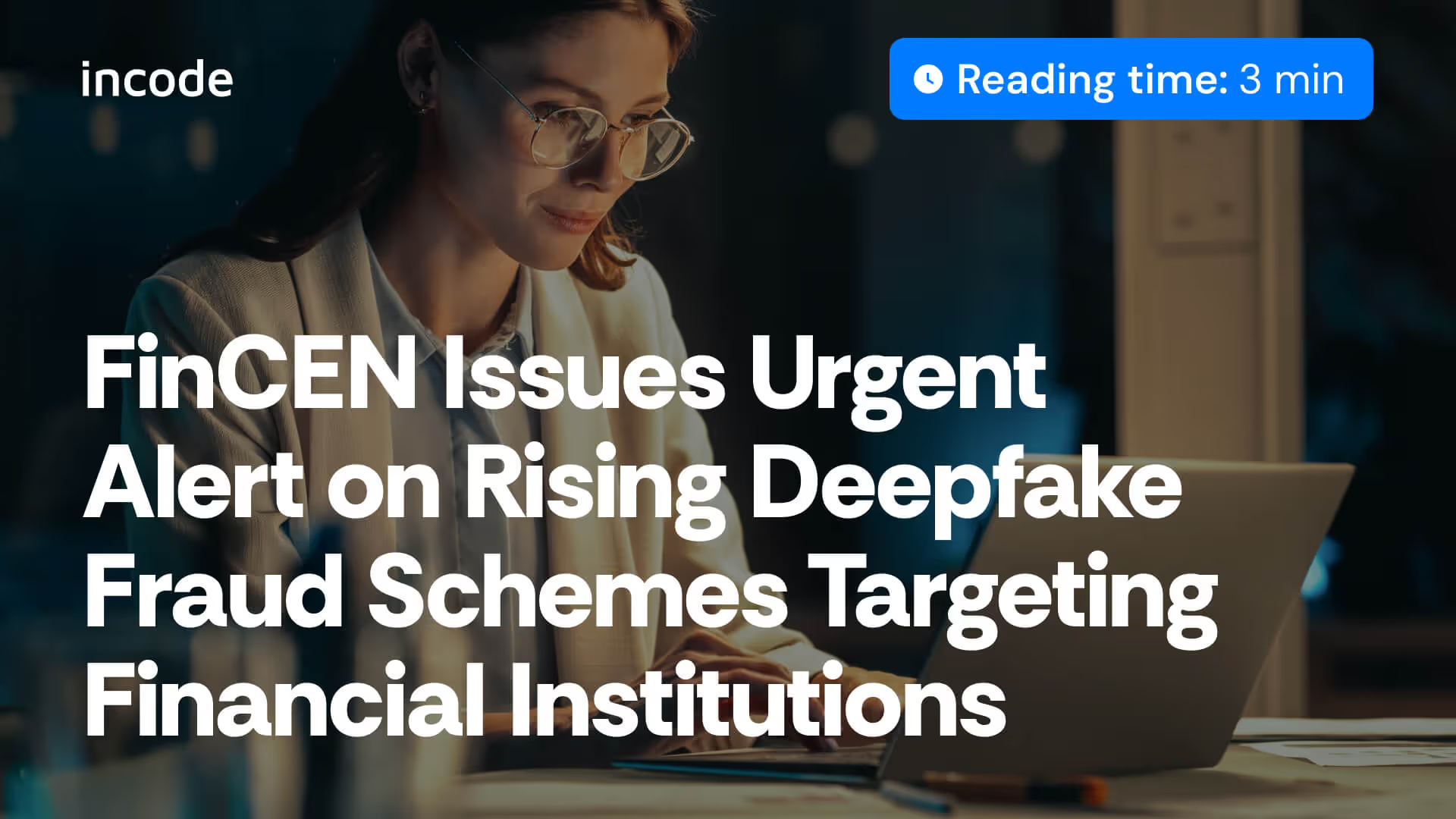FinCEN Issues Urgent Alert on Rising Deepfake Fraud Schemes Targeting Financial Institutions


Deepfakes are not a new phenomenon, but their increasing use in sophisticated fraud schemes has prompted the U.S. Department of the Treasury’s Financial Crimes Enforcement Network (FinCEN) to issue a critical alert. This development underscores a troubling rise in incidents where generative AI-powered deepfakes are being weaponized against financial institutions and their customers. The alert serves as a stark reminder: deepfakes are becoming more pervasive, with significant implications for the security of the financial sector.
FinCEN’s alert, “FIN-2024-Alert004,” reflects a marked rise in reports of deepfake-related fraud. The network has observed a spike in suspicious activity reports that highlight criminals’ growing reliance on synthetic media to manipulate identity verification and circumvent security protocols. FinCEN warns that “criminals have used GenAI to create falsified documents, photographs, and videos to bypass financial institutions’ customer identification and verification controls.” This escalation has made deepfake-enabled fraud an urgent priority for industry leaders.
The alert details how deepfakes are increasingly being used to exploit weaknesses in identity verification and transaction processes. Among the most concerning tactics are:
While deepfake threats have existed for some time, FinCEN’s alert highlights that the situation has reached a critical tipping point. Generative AI tools are becoming more accessible and capable, reducing the cost and time needed to create convincing forgeries. FinCEN notes that these tools can “produce synthetic content that is difficult to distinguish from human-generated outputs,” making traditional defenses less effective.
To help financial institutions mitigate the growing risks, FinCEN’s alert outlines key red flags to identify potential deepfake-driven fraud:
FinCEN emphasizes a multifaceted approach to counter the rising threat of deepfake-enabled fraud. Recommended strategies include:
The FinCEN alert serves as a clarion call for financial institutions to strengthen their defenses and stay vigilant. As highlighted, “the potential for deepfake media to be used in fraud schemes is one of several risks associated with emerging GenAI technologies.” By proactively investing in advanced fraud detection technologies, enhancing customer awareness, and collaborating with peers, the financial sector can better protect itself against this growing threat.
At Incode, we are committed to supporting financial institutions with cutting-edge identity verification solutions tailored to address the evolving challenges posed by deepfake-enabled fraud. Our AI-driven solutions empower organizations to detect and prevent sophisticated fraud attempts, ensuring a secure and trustworthy financial ecosystem.
Ready to strengthen your defenses against financial crime? Partner with Incode to implement robust identity verification solutions and secure your business with our integrated identity platform. Contact us today to learn more.
Read the full FinCEN alert here.